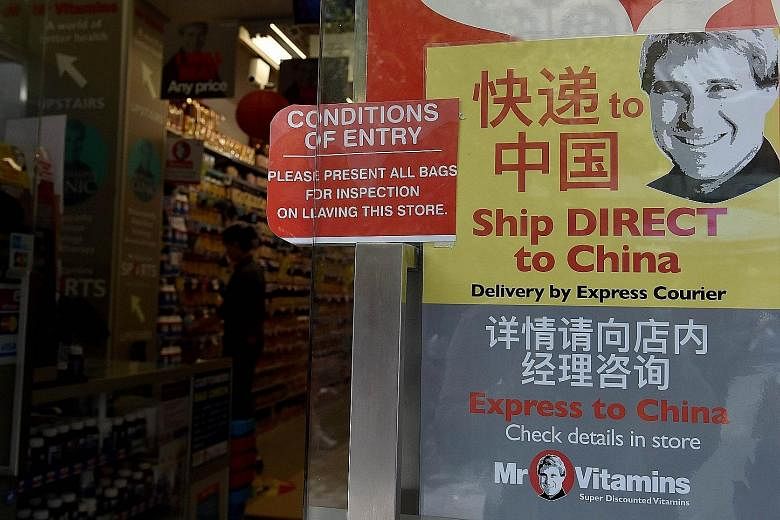SYDNEY • Asian consumers keen to improve their lifestyles are boosting the fortunes of Australian producers of premium baby milk formula, vitamins and honey, as the region's middle class jumps on the health food bandwagon.
Middle-class shoppers are driving a sharp increase in sales of high-quality products, sending the profits and share prices of health food firms - especially those making infant milk formula - into new territory. Leading the way are Chinese consumers fearful of lax food safety standards at home.
The trend is being described as a segue from "mining to dining" as Australia transitions away from supplying China with key metals such as iron ore and coal.
Much of the focus has been on beef and dairy, but smaller firms that produce infant milk powder, vitamin supplements and honey are also benefiting.
Last year, shares of supplements maker Blackmores took the top spot in the Australian market, soaring 534.03 per cent to A$217.98. The company's net profit for the six months ended December was up 160 per cent compared with the previous corresponding period, fuelled by sales to Chinese consumers, which accounted for 40 per cent of its revenue.
Bellamy's Australia, whose organic baby milk powder is nicknamed "white gold", saw its stock price leap more than 700 per cent last year, as its net profit spiked by 325 per cent in the second half.
Such brands are considered trustworthy by the Chinese because they are sold in major supermarket chains in Australia, including Coles and Woolworths, said Mr Benjamin Sun of digital marketing consultancy ThinkChina.
"What they are thinking is that if the milk powder is being taken by Australian babies, it should safe for Chinese babies," he said.
But this demand for baby powder has overwhelmed Coles and Woolworths, which have capped purchases at two or four tins per transaction.
To blame is a burgeoning grey market where purchasing agents known as "daigou" are helping Chinese customers to secure products in Australia and ship them over to China.
Mr Sun estimates there are 5,000 to 10,000 daigou in Australia, ranging from entrepreneurs to international students. He said they can make an average of A$100,000 (S$100,450) a year.
Mr Peter Barraket, who heads a chain of supplements outlets in Sydney, said he is now planning to grow his business by shipping directly to China. He is considering a flagship store on Tmall Global, Alibaba's business-to-consumer platform, but he is cautious about marketing too heavily while stock levels remain low.
"We've got only enough to cater for current demand," said Mr Barraket, formerly Blackmores' financial chief.
AGENCE FRANCE-PRESSE

